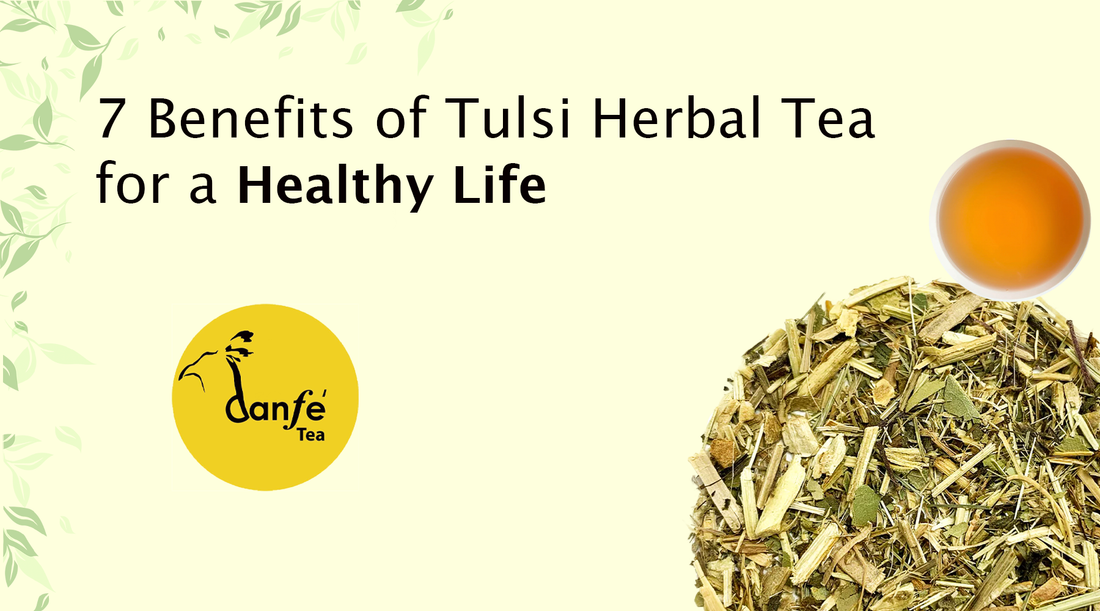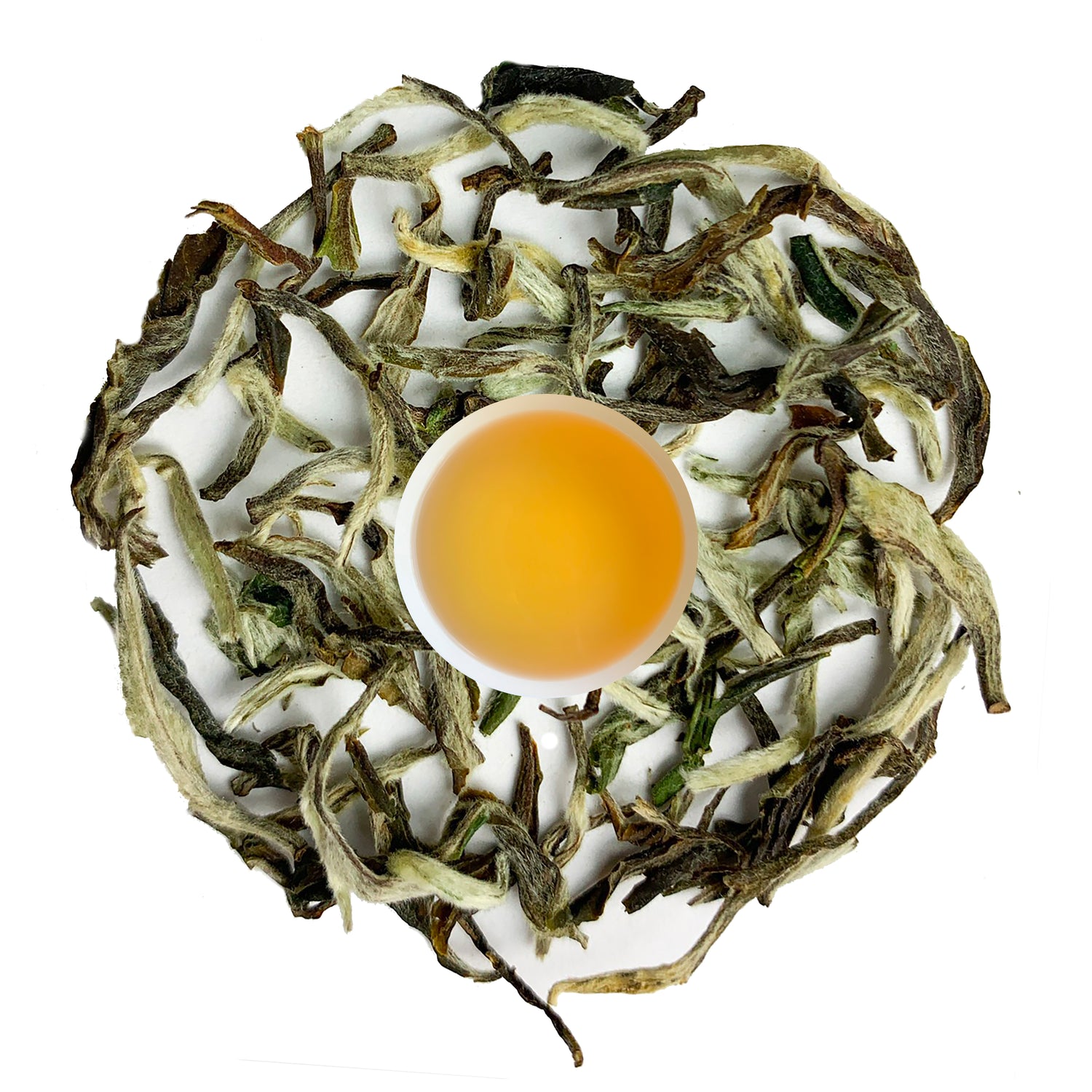
Unlock the Benefits: Make Tulsi Tea Your Daily Ritual
Unlock the Powerful Tulsi Tea Benefits: Your Daily Dose of Holy Basil
Tulsi tea—also known as holy basil tea, or by its botanical name, Ocimum sanctum—is more than just a soothing herbal brew. In ancient Ayurvedic traditions, this sacred plant was a remedy for everything from stress to spiritual imbalance. Today, modern research is confirming what the sages already knew: tulsi is one of the most therapeutic herbal teas out there.
Whether you're feeling overwhelmed, run-down, or just in need of a natural pick-me-up, tulsi tea benefits your body in more ways than one. Let’s explore why this “Queen of Herbs” might just deserve a royal spot in your wellness routine.
What Is Tulsi (Holy Basil)?
Tulsi—also called sacred basil or holy basil—is a leafy green herb native to India and deeply rooted in Ayurvedic medicine. It’s packed with essential oils, antioxidants, and adaptogens that support everything from stress management to hormone balance.
Unlike the sweet basil you toss into pasta, holy basil benefits the body with medicinal compounds like ursolic acid and eugenol, helping you cope with physical, mental, and environmental stress.
Nutritional Profile: What’s Inside a Cup of Tulsi Tea?
Here’s a breakdown of what’s brewing in your mug:
- Antioxidants: Eugenol, ursolic acid, luteolin – all of which help combat inflammation and oxidative stress.
- Vitamins: A, C, and K – great for skin health, immunity, and cellular function.
- Minerals: Calcium, iron, zinc – crucial for strong bones, oxygenated blood, and a resilient immune system.
- Adaptogens: Compounds that help your body adapt to stress—basically nature’s version of chill pills.
Pro Tip: For the most potent tulsi tea benefits, look for organic, loose-leaf tea or high-quality holy basil extract.
7 Evidence-Based Benefits of Holy Basil
1. Reduces Stress and Anxiety
Feeling frazzled? Tulsi is a well-known adaptogen that helps regulate cortisol, your stress hormone. Clinical studies suggest tulsi can:
- Calm anxiety
- Enhance mood
- Improve focus and mental clarity
💡 Think of it as “liquid meditation” without the need for chanting.
2. Aids Digestion and Boosts Metabolism
This zero-calorie tea is your gut’s best friend. Tulsi tea benefits include:
- Supporting healthy digestion
- Promoting fat metabolism
- Easing bloating and stomach cramps
Add a slice of ginger or lemon, and you’ve got yourself a soothing digestive tonic.
3. Balances Blood Sugar Levels
Struggling with sugar swings? Holy basil has been shown to:
- Improve insulin sensitivity
- Lower fasting blood glucose
- Support pancreatic health
For those managing type 2 diabetes, it’s a gentle herbal ally.
4. Improves Skin and Hair Health
Say goodbye to dull skin and lifeless locks. Thanks to its antibacterial and antioxidant powers, tulsi:
- Fights acne and inflammation
- Supports collagen production
- Reduces dandruff and strengthens roots
Try using cooled tulsi tea as a skin toner or scalp rinse—spa day, anyone?
5. Strengthens Immunity
Packed with vitamin C, zinc, and essential oils, tulsi:
- Boosts immune response
- Helps fight viruses and bacteria
- Speeds recovery from colds or infections
🌿 Bonus: Mix with lemongrass or rose for an immunity-boosting power blend.
6. Supports Respiratory Health
If allergies or seasonal sniffles have you down, holy basil may offer relief:
- Acts as a natural decongestant
- Reduces asthma symptoms
- Soothes cough and sore throat
Blame the magic on compounds like cineole and camphene.
7. Balances Hormones and Relieves PMS
One of the lesser-known tulsi benefits is its effect on hormones:
- Regulates cortisol-induced imbalances
- Soothes menstrual cramps
- Encourages hormonal balance
Many women find comfort sipping tulsi during their cycle—it’s like a warm hug in a cup.
How to Brew Tulsi Tea at Home
Whether you're using fresh basil leaves, dried tulsi, or a pre-blended mix, it’s easy to make your own:
Ingredients:
- 1 tsp dried tulsi leaves (or 5–6 fresh leaves)
- 1 cup water
- Optional: ginger, lemon, or honey
Instructions:
Boil the water.
-
Add tulsi and optional extras.
-
Cover and steep for 5–7 minutes.
-
Strain, sip, and breathe deeply.
☀️ Feeling fancy? Cold-brew it overnight for a refreshing summer tonic.
Any Side Effects? Here’s What You Should Know
Tulsi is generally safe, but like any herb, moderation is key. A few considerations:
- Blood thinning: Avoid if you’re on anticoagulants—talk to your doctor first.
- Pregnancy: Consult a healthcare provider before use.
- Low blood sugar: Monitor if you’re diabetic.
- Allergic reactions: Rare, but stop if you notice rashes or nausea.
When’s the Best Time to Drink Tulsi Tea?
- Morning: To energize and refresh.
- Post-meal: For digestion support.
- Evening: To wind down before bed.
- During PMS: For hormone harmony.
1–2 cups daily is just right for most people.
Final Thoughts: Is Tulsi Tea Worth It?
Absolutely. The benefits of holy basil go far beyond a tasty cup of tea. With its calming, detoxifying, immune-boosting, and skin-nourishing properties, it’s the kind of ritual that adds value to your day—and maybe even years to your life
🌿 Explore Organic Tulsi Tea from Danfe
Looking for high-quality, organic holy basil tea?
Danfe Tea brings you premium loose-leaf tulsi, grown in the crisp Himalayan air. Available in 2.5 oz, 3.5 oz, and 1 lb sizes—perfect for daily sipping or gifting.
✨ Try blending it with rose, ginger, or lemongrass for an extra kick of goodness.
→ Shop Organic Tulsi Tea at DanfeTea.com
❓FAQs: Everything You Want to Know About Tulsi Tea
What are the key tulsi tea benefits?
It helps relieve stress, improve digestion, boost immunity, balance hormones, regulate blood sugar, and clear skin.
Is tulsi the same as sweet basil?
Not quite. Tulsi (Ocimum sanctum) is a medicinal herb, while sweet basil is mainly used in cooking.
Can I drink tulsi tea daily?
Yes—1 to 2 cups daily is safe for most people.
Does tulsi tea contain caffeine?
Nope! It’s naturally caffeine-free—perfect for morning, noon, or night.
Is it safe during pregnancy?
Always consult your healthcare provider before adding herbs to your prenatal routine.










